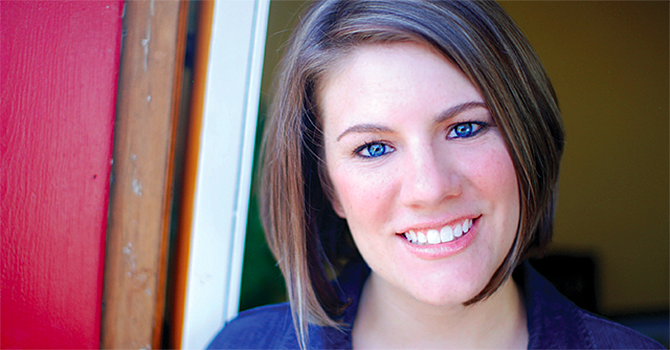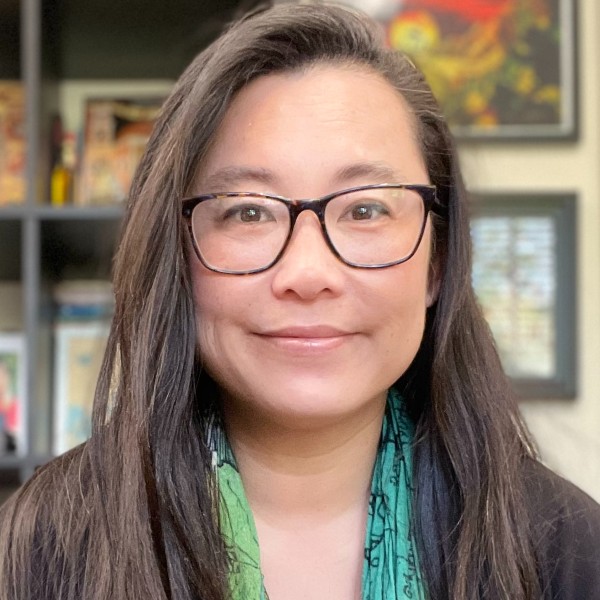My story is about … evolution. It’s about moving from certainty, through doubt, to faith. It’s not about the answers I found but about the questions I asked, questions I suspect you might be asking too. It’s not a pretty story, or even a finished story. It’s a survival story. It’s the story of how I evolved in an unlikely environment, a little place called Monkey Town.
These are the words at the end of the introduction of Rachel Held Evans’ first book, “Evolving in Monkey Town” (later reissued as “Faith Unraveled”). Like so many Christians, I first encountered Rachel through her blog. The year was 2010, when I was struggling to make sense of theological, social and political discrepancies and the church’s seemingly increasing irrelevance. As I perused her website this week after her death May 4, 2019, at age 37, I saw that her archives go back to 2007. I clicked the inaugural post and read her first words -- tearfully, because they were so familiar.
With a background in literature and a professional vocation in journalism, Rachel began to blog as a way to work out her faith and life. Her first post exudes the same humility and compassion I have so admired in her, a desire for learning and journeying that continues throughout the blog:
Spiritual pride is always a temptation for the believer, and I sincerely hope it is avoided on this blog. No one’s journey is the same. There is much to learn from one another. So instead, I would like this little spot on the Web to serve as a sort of traveler’s forum, a place for exchanging adventure stories, survival tips, and those priceless hole-in-the-wall recommendations that make a journey memorable. I look forward to sharing my own ideas, and I look forward to hearing from you.
Rachel maintained this posture of openness not only in her writing but also in person, something I discovered in September 2015 when we met as she convened at the first Why Christian conference. I had been invited -- miraculously, it seemed -- to participate as one of the speakers.
There, Rachel was so present with me, as if we had known each other forever. She saw me and loved me. And afterward, she continued to be a deeply loyal advocate for me -- of my work, my writing, my struggling and my journey.
But she wasn't just an advocate for me. Rachel’s reach was far and wide, and when she talked to anyone in person, she had that same easy, light disposition. As she chatted with people after her talk or interacted with people on her blog and on social media, I could see clearly that she was a pastor. Though I am the one who is an ordained minister, she was a pastor to me, too: an encourager, a fellow sojourner, a questioner and a guide.
In the foreword she wrote for my recent book, “Outside the Lines,” her words made me feel that my work meant something -- that even if in only a small way, it could do something for others:
With this book, Mihee offers both an antidote and a balm -- an antidote to the poisonous lies that the culture and the church tell us about our bodies and our identities, and a balm to soothe and heal the pain those lies have caused. What a gift this work is to the church and to the world.
The work of soothing and healing was indeed her work in the world.
Rachel constantly did this work. She provided people who were broken and hurt by the institution of American Christianity with a description of, and even a prescription for, recovery. She presented and embodied healing, redemption and grace, and offered a courageous vision of the table. As she wrote in “Searching for Sunday”:
The table can transform even our enemies into companions. The table reminds us that, as brothers and sisters adopted into God’s family and invited to God’s banquet, we’re stuck with each other; we’re family. … The table teaches us that faith isn’t about being right or good or in agreement. Faith is about feeding and being fed.
Rachel showed us what happens when people are loved for who they are and where they are in their seasons, with all their baggage, all their questions, all their desires for genuine church.
I’ve read so many of her words, in books and blogs, and I see why people found her so relevant and accessible. Her work and life shaped my sense of vocation and writing.
Through it all, Rachel was who she was -- simply and totally herself.
There was never an agenda. There was never a single ounce of pretension. There was simply an honest living-out, a living testimony of a young woman who loved God, loved people, loved the church and wanted the same for others. Her writing was not only interesting or instructive; it was beautiful. She had a knack for litanies in which images and statistics would be woven together like poetry, and her words were truly inspiring to me and so many others.
Even now, she does not cease to amaze me.
From church to family to politics to marriage to motherhood to LGBTQ inclusion to feminism to travel to putting down roots, the rich compass of Rachel’s writings will continue to reverberate and do healing work in this world. Rachel preached and prophesied. Her words still speak truth and convict me over and over again, giving me a language to speak truth to.
She had the pen of a poet, the presence of a pastor and the passion of a prophet. And I -- and the church, and the whole world -- will be forever profoundly touched and changed by her life.













